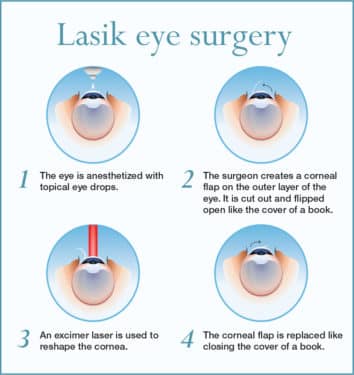The Complete FAQ On Refractive Lens Exchange: Essential Information You Need To Know
The Complete FAQ On Refractive Lens Exchange: Essential Information You Need To Know
Blog Article
Web Content Written By-Miller Huynh
If you're considering refractive lens exchange, you possibly have a lot of questions. This treatment could change how you see the globe, offering advantages like reduced reliance on glasses. However, it's essential to comprehend the process, risks, and who qualifies as an excellent prospect. Let's check out these crucial elements so you can make an educated decision about whether RLE is right for you.
What Is Refractive Lens Exchange and How Does It Function?
Refractive lens exchange (RLE) is a procedure made to change your eye's all-natural lens with a man-made one, dealing with vision concerns like nearsightedness, farsightedness, or presbyopia.
Throughout the procedure, your cosmetic surgeon makes a small incision in the eye, eliminates your natural lens, and inserts an intraocular lens (IOL) customized to your vision needs. This outpatient surgical treatment typically takes about 15 to 30 minutes per eye and is performed under local anesthesia.
You'll likely observe enhancements in your vision nearly quickly, though complete healing may take a few weeks. RLE is especially helpful for those over 40 or with high prescriptions, using a resilient solution compared to glasses or get in touch with lenses.
Your eye treatment professional can help establish if RLE is right for you.
What Are the Benefits and Threats of Refractive Lens Exchange?
Selecting refractive lens exchange can cause substantial enhancements in your vision, but it's important to weigh both the advantages and risks before choosing.
On the plus side, this procedure can improve your eyesight by dealing with problems like presbyopia, nearsightedness, and hyperopia. Numerous clients enjoy reduced dependancy on glasses or get in touch with lenses, which can greatly enhance their lifestyle.
Nevertheless, it's critical to take into consideration potential risks. Problems can consist of infection, glare, or halos around lights.
There's also a possibility of overcorrection or undercorrection, which might call for extra procedures.
That Is an Ideal Prospect for Refractive Lens Exchange?
If you're taking into consideration refractive lens exchange, it is essential to know whether you fit the account of an ideal candidate. Usually, you might be an excellent candidate if you more than 40, experience presbyopia, or have high degrees of nearsightedness or farsightedness.
https://squareblogs.net/mirta99lemuel/behind-the-scenes-of-a-lasik-specialist-trick-points-they-hope-you 's additionally critical that your vision is secure, suggesting your prescription hasn't transformed substantially in the past year. If you have cataracts or various other eye conditions, you may benefit from this procedure also.
However, particular factors, like uncontrolled diabetic issues or autoimmune conditions, could invalidate you. To determine your candidacy, consult with an eye care professional that can evaluate your certain situation and advise the best strategy customized to your demands.
Conclusion
Finally, refractive lens exchange can be a transformative choice for boosting your vision, particularly if you more than 40 or have a high prescription. While the advantages are substantial, it's critical to evaluate the dangers and speak with your eye care expert to identify if you're an excellent prospect. With https://www.aarp.org/health/healthy-living/info-11-2013/shopping-for-eyeglasses.html and assistance, you can make a notified decision and potentially appreciate a life with minimized reliance on glasses.
